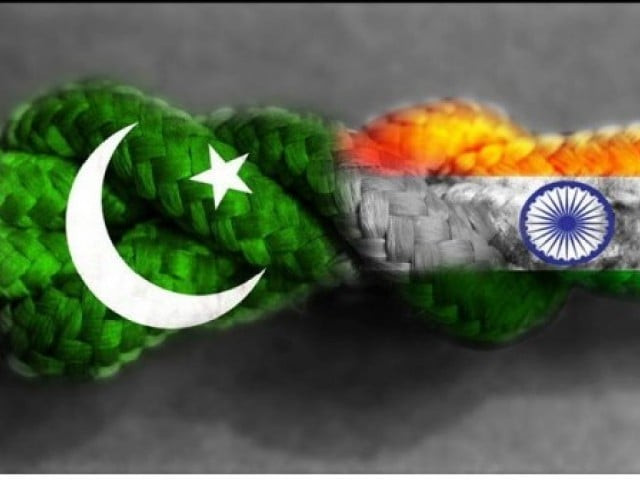Discussing hostility: ‘Peace must for stability, development’
Speakers advocate firm stance against India; resumption of composite dialogue.

The conference on “Pakistan-India Relations: Post-Congress Era” PHOTO: FILE
Academics and strategic experts at a conference here on Tuesday expressed concern over hostility in the region and called for resumption of composite dialogue between India and Pakistan with a new format.
They were of the view that peace between the two nuclear states is a prerequisite for socio-economic development and stability in South Asia.
The hostile relations between India and Pakistan have inflicted immense damage to their prospects of socio-economic development and prevented the realization of their full potential, the participants said in a set of recommendations issued to the media.
The conference on “Pakistan-India Relations: Post-Congress Era” held at a local hotel was unanimous in its assertion that India’s adamant stance should now be met with firm and consistent policy stand abandoning appeasement.
The conference organised by Islamabad Policy Research Institute (IPRI) gave an overview of BJP’s policies, its internal political dynamics and impact on Pakistan-India relations which were at a standstill thanks to Modi government’s cancellation of foreign secretary level talks, violations across the Line of Control (LoC) and Indian opposition to China-Pakistan Economic Corridor (CPEC).
They also asked India to abandon anti-Pakistan rhetoric and promote regional cooperation and called upon Pakistan to strengthen strategic ties with China, cordial relations with Iran, Turkey and Central Asian states.
They said the manifesto of the BJP is viewed with some reservations in Pakistan because of its hawkish and revisionist undertones that require the reversal of India’s traditional nuclear doctrine of ‘No-First Use’. This reversal signals a provocative posturing on nuclear and strategic issues. Such actions may destabilize the fragile deterrence stability in the South Asia region and is likely to force Islamabad to respond forcefully to ‘restore’ the strategic balance, the speakers said.
Pakistan-India composite dialogue should be resumed with a new format agreed to by both Pakistan and India, the conference recommended.
It further recommended that Pakistan may adopt confidence-building measures (CBMs) approach to resolve the issue according to the aspirations of Kashmiri people.
It also called for resolution of water issues through the mechanisms provided by the Indus Basin Treaty.
There is a dichotomy in India’s position on regional connectivity. On one hand, it talks about regional connectivity whereas its opposition to CPEC is in sharp contrast to regionalism.
The agenda of development and trans-regional energy trade could also be the points of convergence between Pakistan and India, it said.
If India wants to have access to the natural resources of CARs, it will have to improve relations with Pakistan, the conference said.
The conference stressed that Pakistan must strengthen strategic partnership with China, rebuild trust with Afghanistan, should have cordial ties with the West, Iran and Turkey, and build up bridges of understanding with Russia while developing cooperation with CARs.
The recommendations further said normalisation of relations between Pakistan and India will depend on mutual reciprocity. Either side has to come forth for the common goal of prosperity for the people and the two countries and South Asian region at large.
Dr Muhammad Khan evaluated the prospects of bilateral relations and held bilateralism was a self serving strategy for India and only helped in maintaining the status quo.
Both Pakistan and India could be beneficiary of bilateralism. If bilateralism isn’t working, there is no harm in resorting to other mechanisms.
In his opening remarks IPRI President Sohail Amin said the expectations of some healthy change engendered at the time of Modi’s coming to power had been belied and the relations between the two neighbours were at their lowest ebb.
Dr Arshi Saleem Hashmi and Brig (retd) Said Nazir Mahmood presented an overview of BJP’s policies and its internal political dynamics based on the concept of Hindutva and in confrontation with Pakistan lay its survival. That’s why it was finding hard to balance against its democratic secular image, they said.
Published in The Express Tribune, August 5th, 2015.



















COMMENTS
Comments are moderated and generally will be posted if they are on-topic and not abusive.
For more information, please see our Comments FAQ